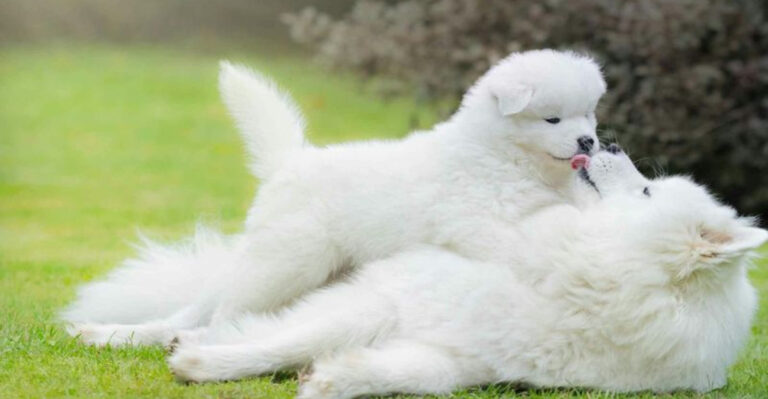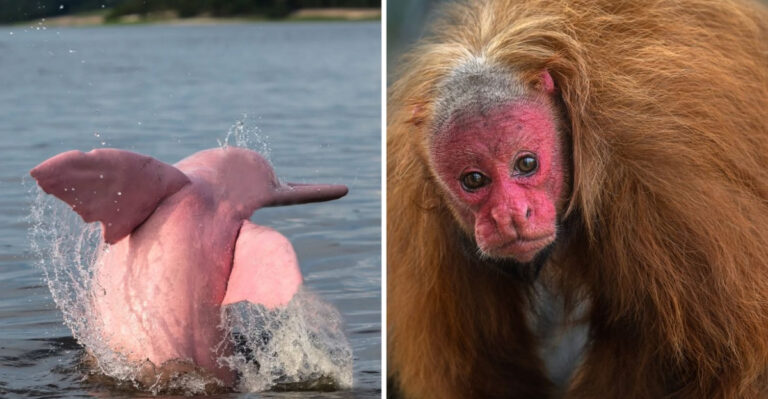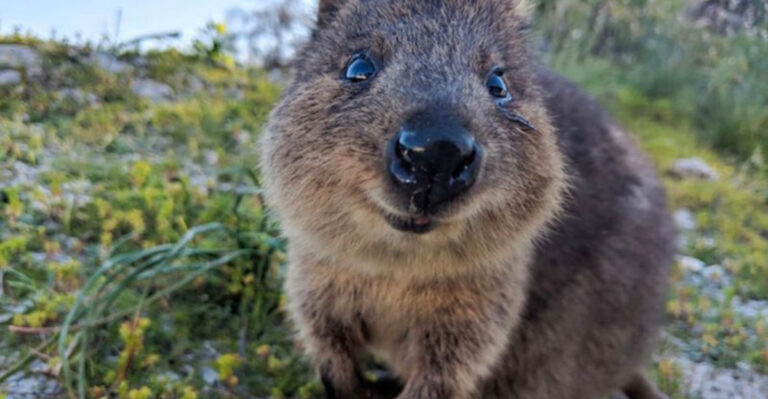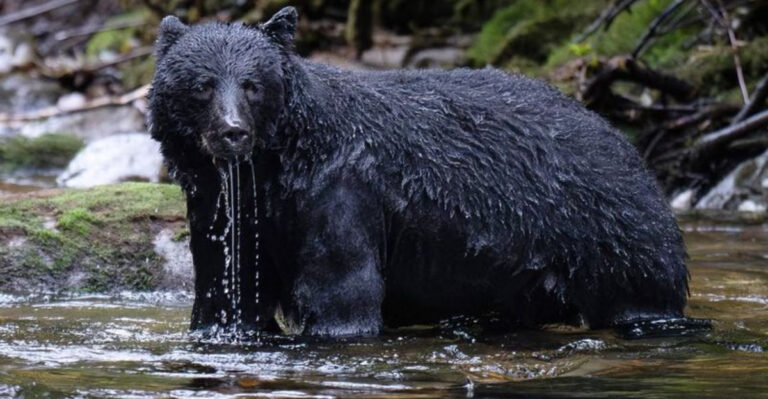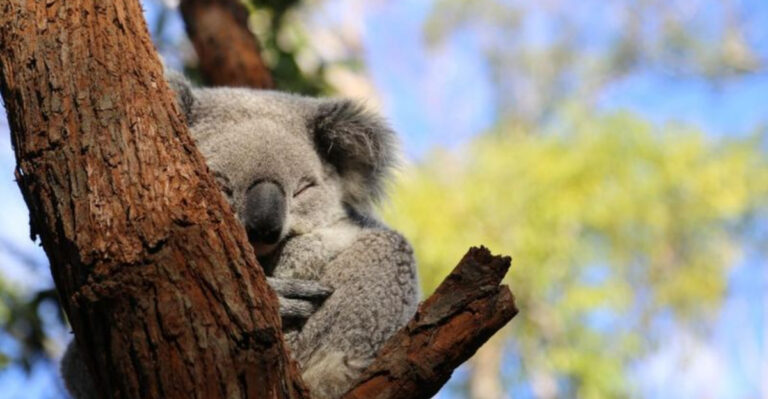15 Reasons Herd Life Is Essential For A Horse’s Health And Happiness
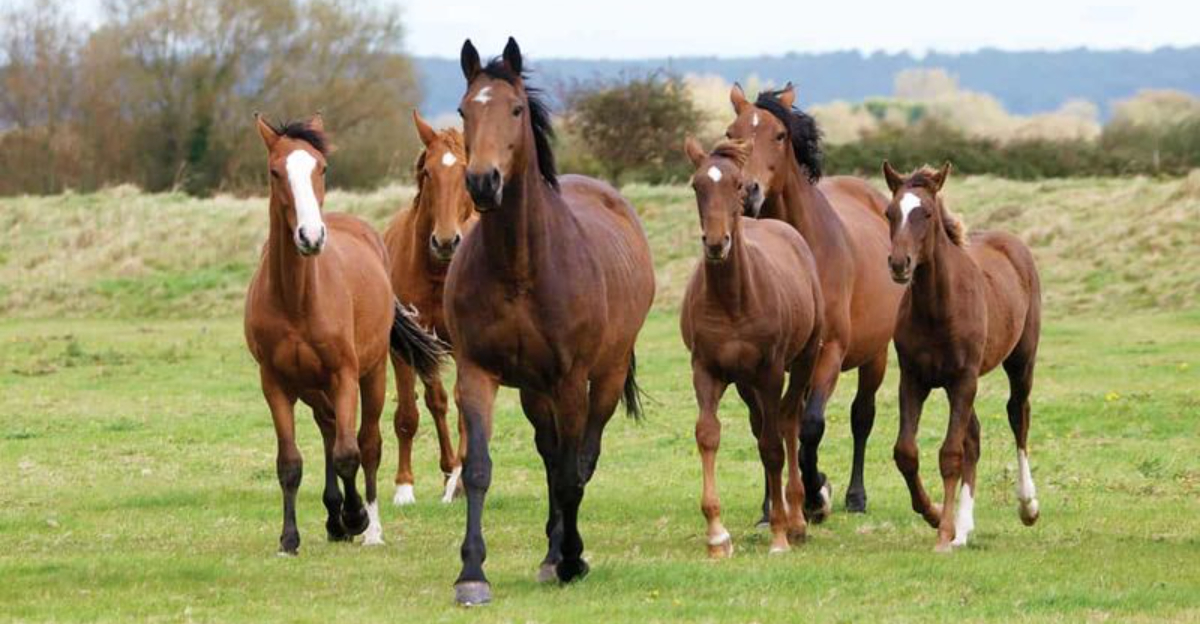
Imagine a horse not just running wild, but thriving in a herd. Horses are social creatures that find joy and health in numbers.
From boosting their mental state to enhancing physical fitness, the herd life offers perks beyond the obvious. Here’s a playful look at why these majestic animals need their buddies for a happier, healthier existence.
1. Emotional Support System
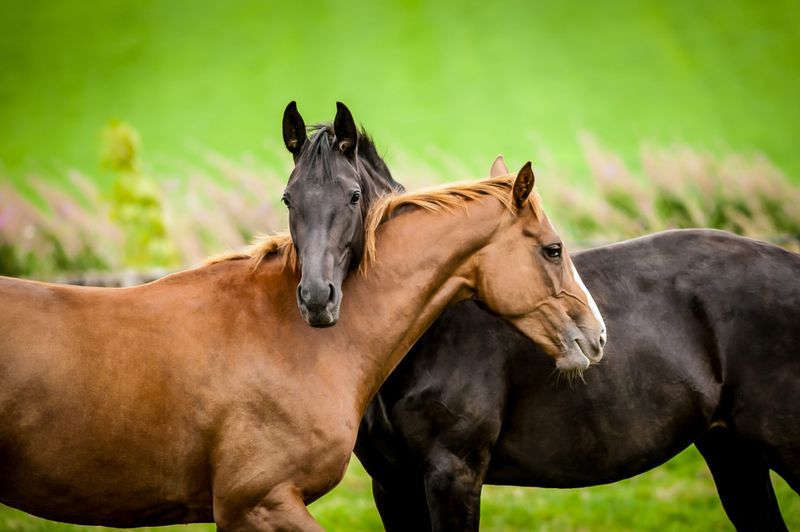
Picture this: horses gossiping in their own silent way, sharing the day’s adventures. In a herd, horses find solace, reducing stress and anxiety.
They lean on each other, quite literally, understanding body language and forming bonds. This emotional network enhances their overall mental well-being, making life less lonely.
2. Natural Playgrounds
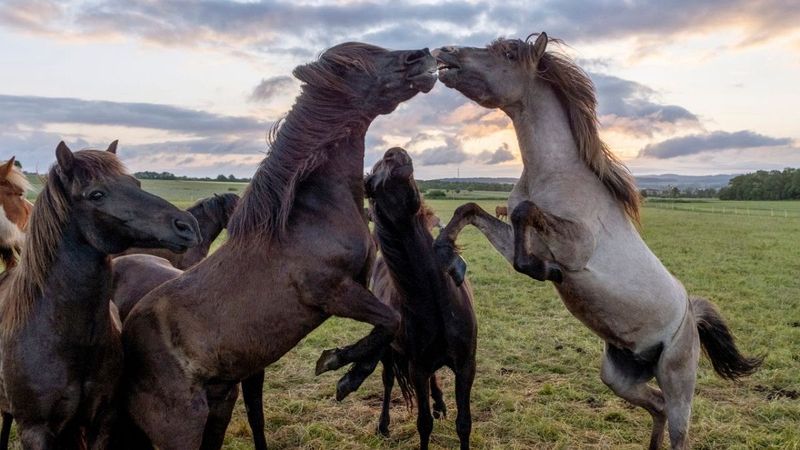
Who needs playgrounds when you’ve got nature? In a herd, horses can play freely, running, jumping, and engaging in playful antics.
These activities stimulate their minds and keep them physically fit. Social play aids in learning boundaries and developing social skills, much like human children on a playground.
3. Safety In Numbers
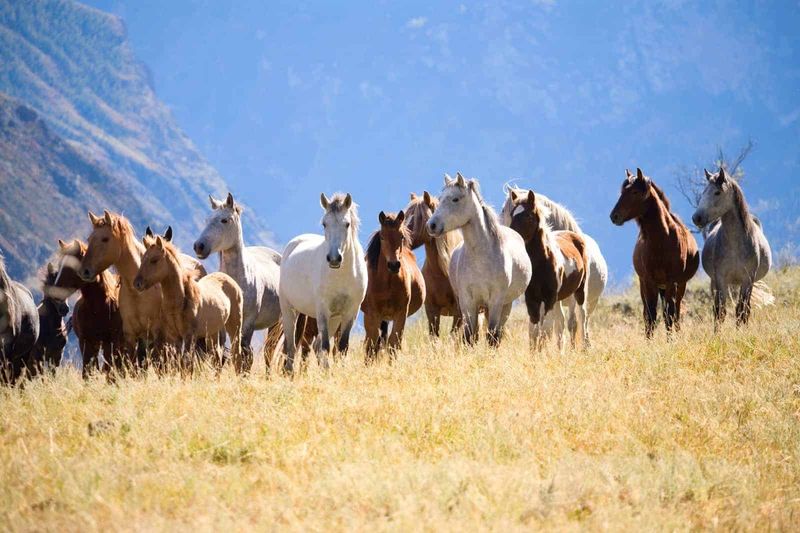
Ever heard of the phrase “safety in numbers”? Horses in a herd feel more secure from predators.
With multiple eyes and ears, they can detect threats more efficiently, allowing for a quicker response. This protective circle is nature’s way of ensuring horses remain safe and sound in the wild.
4. Hierarchical Harmony
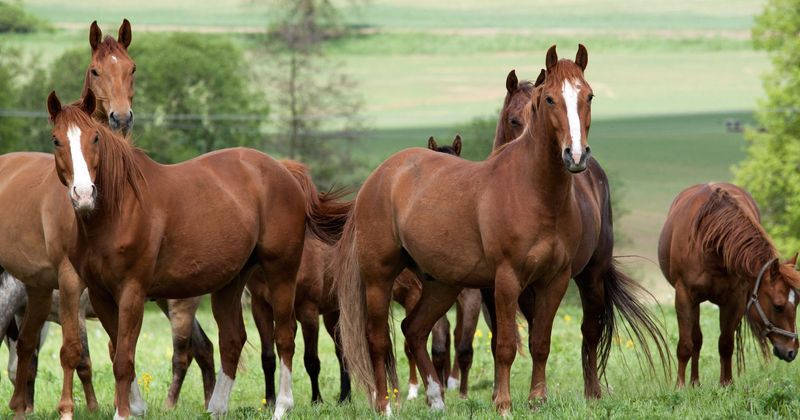
Herds operate on a natural hierarchy, teaching horses their place in the social order. It’s not just about who’s boss!
This structure ensures harmony and reduces conflicts, allowing horses to coexist peacefully. It teaches them respect, boosting their social intelligence and fostering a stable environment.
5. Shared Learning Experiences
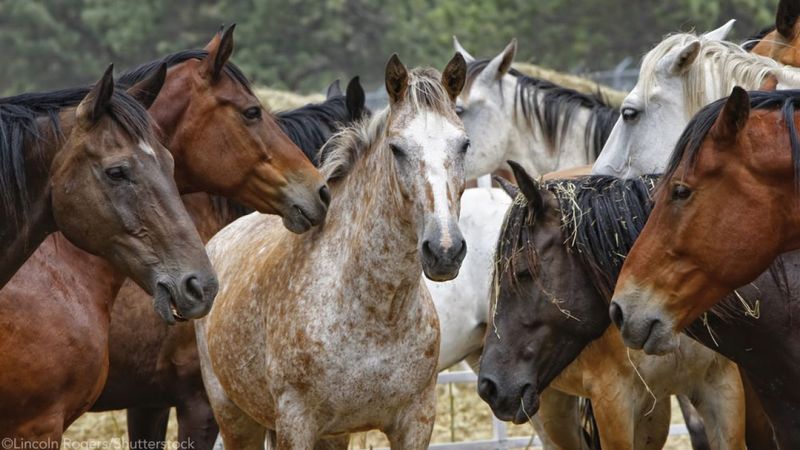
Young foals have much to learn, and who better to teach them than their experienced herd members?
Herd life allows for the sharing of knowledge and experiences, crucial for survival skills. This shared learning fosters growth and development, ensuring young horses adapt well to their environment.
6. Better Physical Health
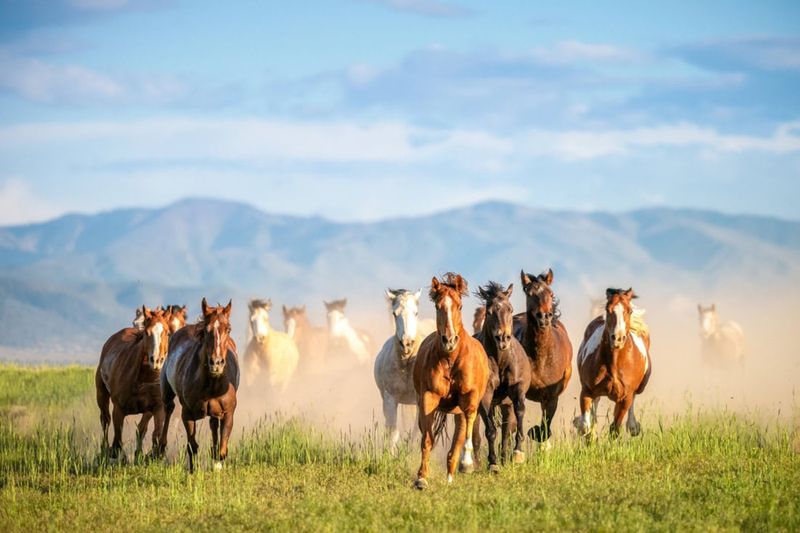
Herd life keeps horses on the move, preventing obesity and other health issues.
Regular movement and exercise are natural parts of their day, promoting cardiovascular health. A life in the herd means more than just survival; it ensures horses stay fit and healthy, living their best lives.
7. Social Grooming Rituals
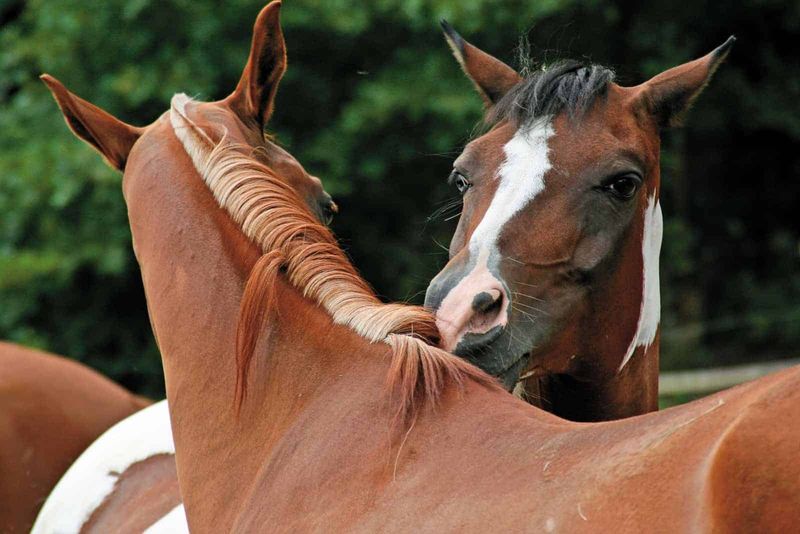
Ever seen horses nibbling on each other’s backs? It’s not just cute but crucial for their health.
Social grooming helps in maintaining hygiene and strengthens bonds. This ritual reduces stress, releasing endorphins, and providing mutual pleasure and relaxation.
8. Adaptation To Weather
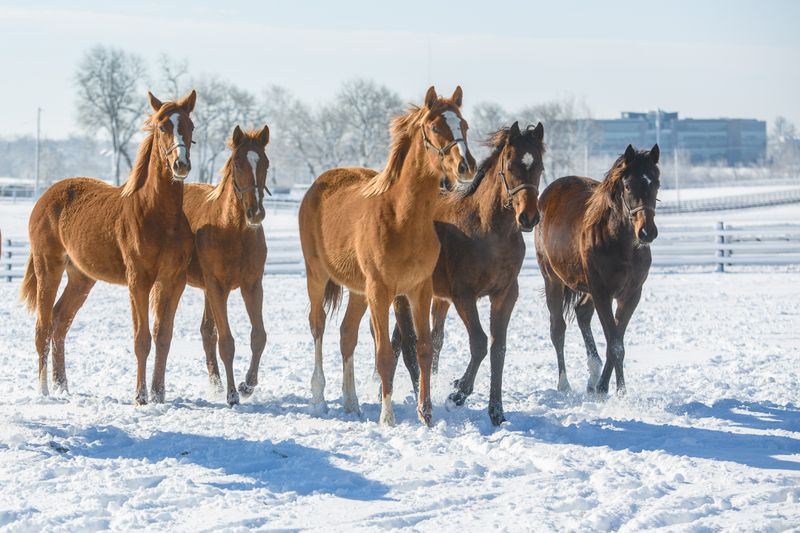
Herd life isn’t just about fun and games. It teaches horses to adapt to changing weather conditions.
By huddling together, they conserve warmth in the cold. It’s a natural heater, showing how cooperation aids survival.
9. Developing Communication Skills
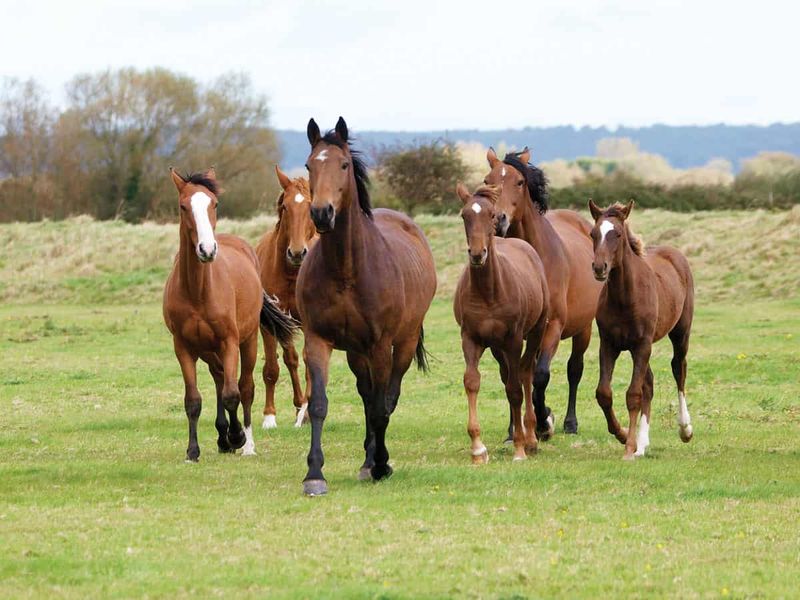
Horses communicate using body language, and a herd provides ample opportunities to practice. From subtle ear flicks to tail movements, each gesture conveys a message.
Constant interaction hones their communication skills, making them adept at understanding and responding to cues, essential for social harmony.
10. Creating Lifelong Bonds
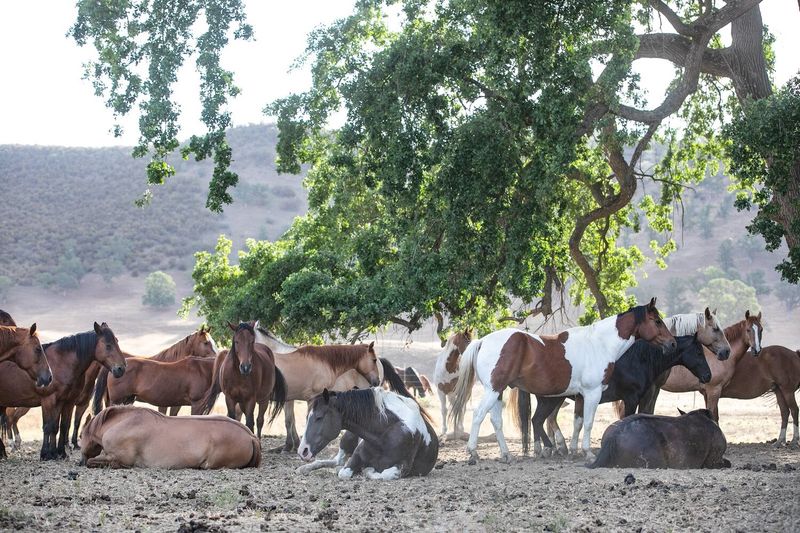
Herd life isn’t just a temporary arrangement; it’s about forming lifelong friendships. These relationships provide emotional support and stability.
Horses recognize their buddies, and this familiarity reduces stress and fosters trust. They become family, sharing joys and challenges together.
11. Nurturing Instincts
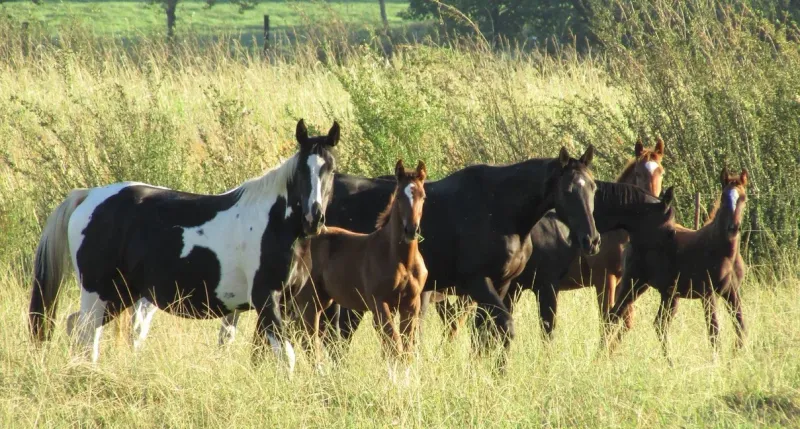
The nurturing instinct is alive and well in a herd. Mares help each other in rearing the young, teaching them the ropes of life.
This communal care ensures foals receive the best start, learning from various mothers. It’s a supportive network that benefits the entire group, promoting growth and development.
12. Encouraging Exploration
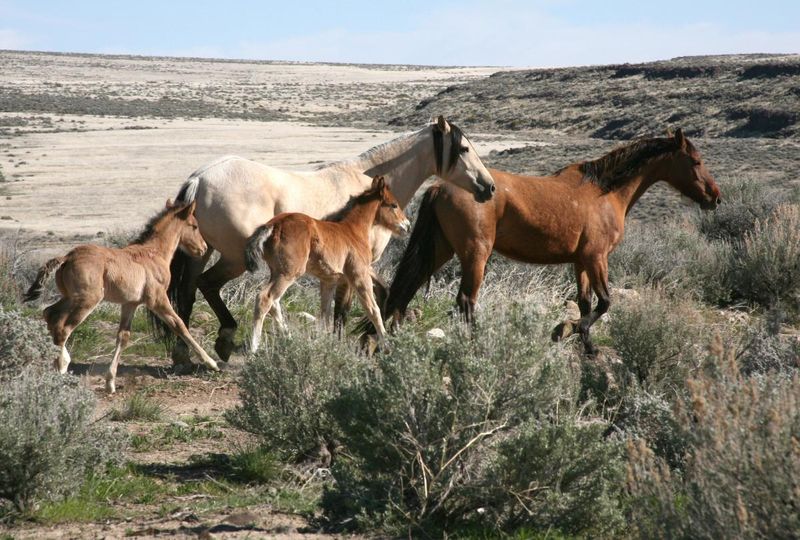
Within a herd, curiosity is encouraged. Young horses feel safer exploring new environments. They learn about the world, discovering new scents and sights under the watchful eyes of elders.
This exploration promotes mental agility and confidence, essential for their overall growth and happiness.
13. Seasonal Adaptations
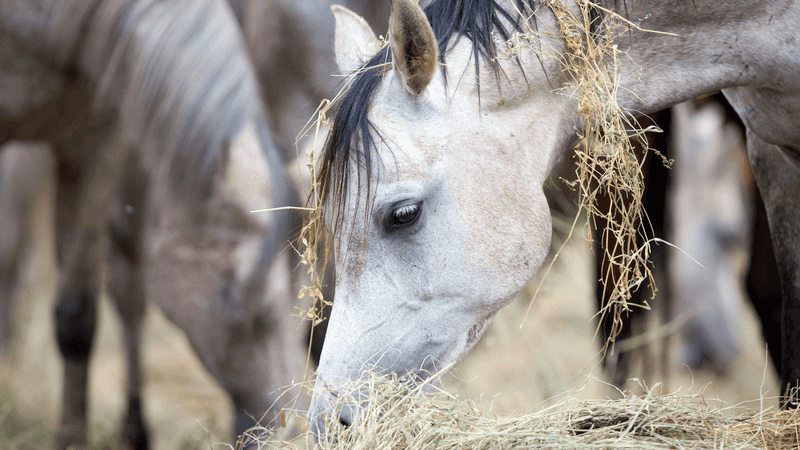
Herds help horses adapt to seasonal changes, from food sources to migratory habits. By observing and learning, they adjust to different diets and routines.
This flexibility ensures they thrive year-round, no matter the season. It’s a testament to their adaptability and the herd’s role in teaching these essential survival skills.
14. Fostering Independence
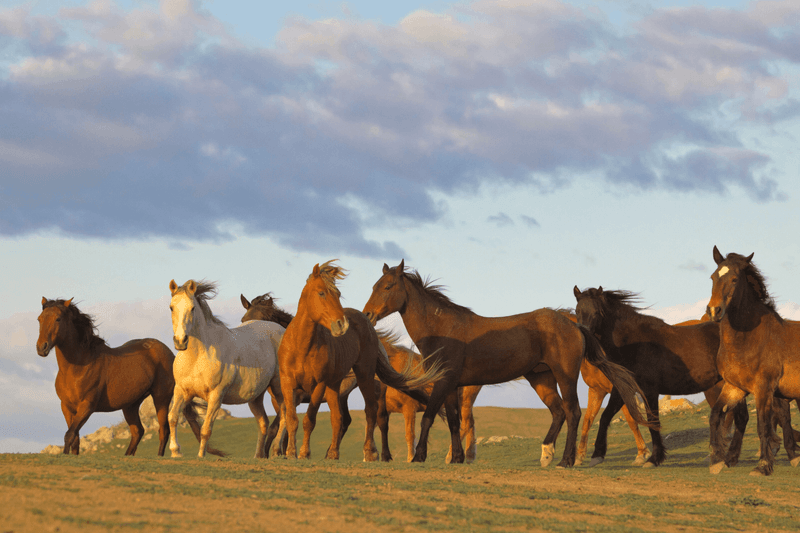
While herds provide safety, they also foster independence. Young horses gradually learn to stand on their own, developing confidence.
They find their strengths, exploring individuality while staying connected to the group. This balance of dependence and independence is vital for their overall development and self-reliance.
15. Cultural Transmission
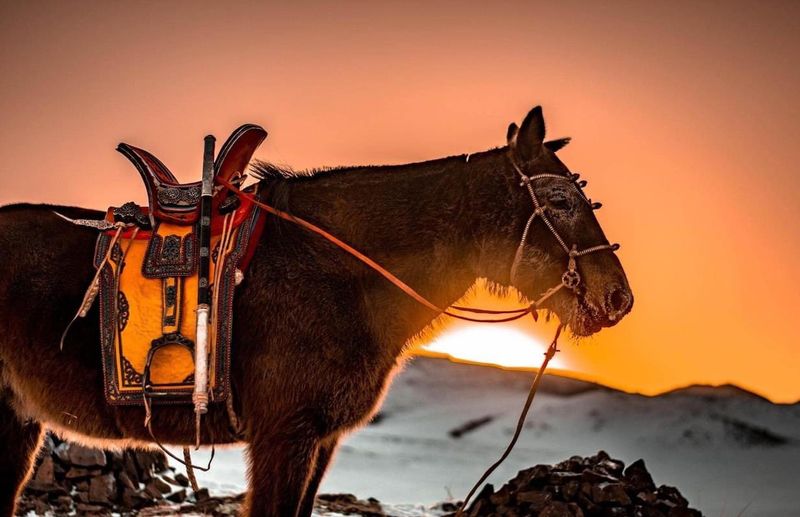
Herds are a melting pot of cultures and traditions, passing down behaviors across generations.
Older horses teach the young about migration paths, feeding habits, and social rituals. This cultural transmission ensures the survival of essential knowledge, keeping the herd’s legacy alive and vibrant.

